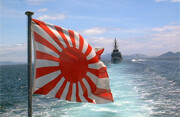During the eight years of the Bush administration there was much emphasis on the importance of the U.S.-Japan partnership. Pleased with the added attention to the bilateral relationship, the Japanese government reciprocated by dispatching naval vessels to the Indian Ocean (to refuel coalition ships involved with Afghan operations) and sending 550 soldiers to Iraq (for strictly non-military activities). Viewed in the larger framework of global affairs, these actions were pitifully small, even though Japan watchers saw them as important steps toward eventually playing a role in security matters commensurate with the nation's economic weight. Now Japan has taken yet another tiny step in that direction, dispatching two destroyers to deal with pirates off the coast of Somalia (but with extremely restrictive rules of engagement).
Should we be pleased that Japan is gradually stepping up to its responsibilities in global security? Or should we be dismayed that the process is taking so long and that Japan's involvement continues to be so minor and so restrictive? Or should we look at Japan's role in an entirely different way? I vote for the third approach.
Japanese society emerged from World War II thoroughly traumatized by the vast destruction and human suffering brought down upon them in the war launched by their militaristic government. They embraced Article 9 of the new constitution, which prohibits the use of military force to settle international disputes. But Japan certainly has to worry about its security, defined in broad terms. During the Cold War, there was the possibility of invasion or nuclear attack by the Soviet Union. More broadly, Japan engages in extensive international trade, foreign direct investment, and portfolio investment, activities that can be disrupted in a variety of ways.
As the nation became very affluent, the U.S. government began to pressure Japan to do more to contribute to global "public goods." And the Japanese government realized that other nations would not always protect specific Japanese international interests. The military budget, for example, expanded (to 1 percent of GDP), though the defensive stance considered consistent with the constitution precluded an ability to project force very far beyond the home islands.
Contributing to global public goods, however, is not confined to military engagement. Why should every major nation play a military role? Why not define security more broadly and consider other ways to maintain peace and prosperity? The Japanese public continues to be ambivalent about participating more fully in military action due to both a lingering fear that its own government would use the military option badly once again, and a belief that even collective action—such as the invasion of Iraq—is often misguided. We should respect the public's self assessment. Japan is, after all, a democracy.
Japan, however, contributes to global security in many other ways. By the 1980s, Japan had become a major provider of foreign aid—money that can be used to reduce the poverty that is a root cause of Somali piracy or the rise of radical movements like Al Qaeda and the Taliban (although foreign aid was often tied to narrower Japanese commercial interests). And over the next half century, the key security issue in the broadest sense is likely to be climate change. Japan has a strong record of dealing with energy conservation and development of alternative energy sources. Japanese firms are global leaders in technologies such as solar cells and hybrid automobiles.
In the current global economic recession, the Japanese government stands firmly with the United States in favor of using aggressive fiscal stimulus (in contrast to some European governments). The government also recently announced new aid for poor countries suffering from the current recession. Such policies will help keep the global recession from morphing into a security problem (as did the Great Depression).
Playing a leadership role in global economic development or combating global warming should count as much as military engagement in assessing Japan's contribution to global security. Japan deserves considerable credit for coping with the rest of the world in a non-military manner and contributing to non-military public goods.
Unfortunately, even Japan's non-military role is currently somewhat limited. The foreign aid budget has been flat or falling for over a decade. The government is not playing a leading role in shaping a post-Kyoto Protocol global climate change agreement. Only about 100 Japanese civilians have been dispatched to Afghanistan (as aid workers, doctors, and educators) to carry out the vital task of rebuilding the nation in a way that ultimately defeats the efforts of Taliban insurgents to regain political control. The list goes on.
Japanese society will continue to debate the role of military for years to come, and whatever changes occur will continue to be incremental. U.S. pressure in this direction will result in little more than frustration in Washington. But Japan appears ready and willing to take on a more active role in areas such as climate change and economic development. With a bit of encouragement, Japan could become less of a lightweight in these aspects of global security.




